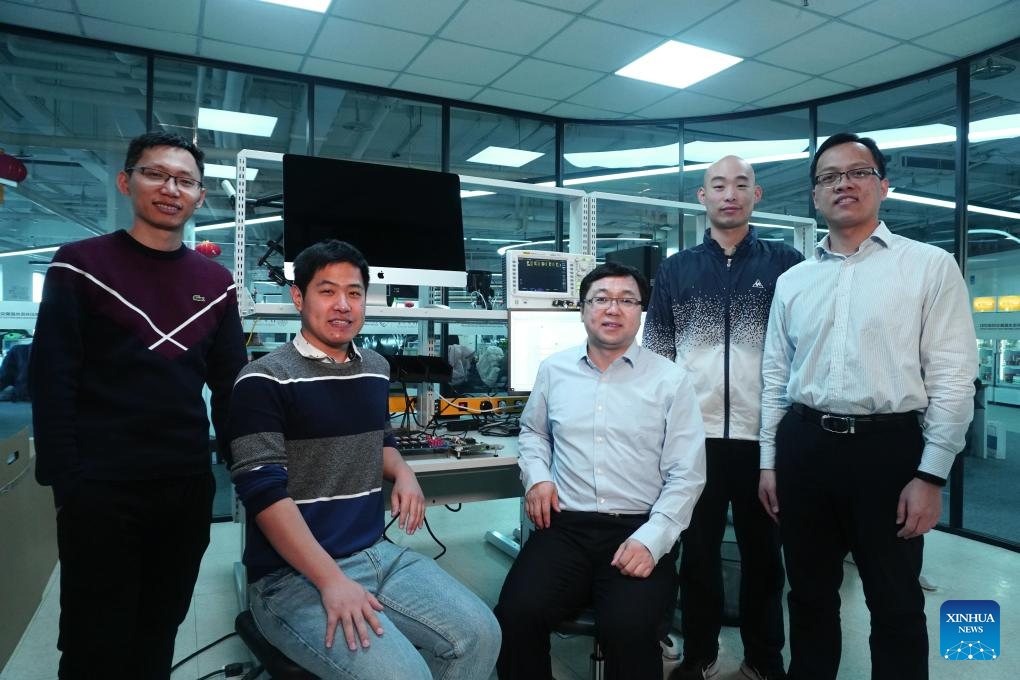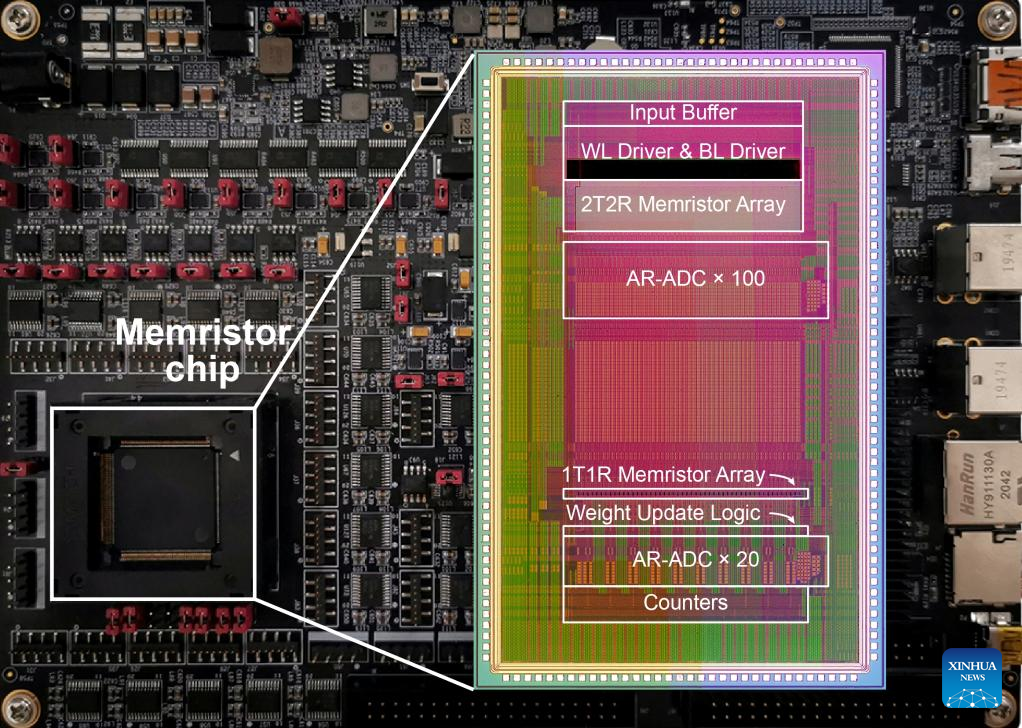Scientists develop fully integrated memristor chip with low energy consumption

This photo taken on Jan. 18, 2020 shows the research team led by professor Wu Huaqiang (C) at Tsinghua University in Beijing, capital of China. (Tsinghua University/Handout via Xinhua)
BEIJING, Oct. 11 (Xinhua) -- Chinese scientists have developed a fully integrated memristor chip with improved learning ability and low energy cost, according to a study recently published in the journal Science.
With artificial intelligence (AI) technology profoundly changing the way of production and life, learning becomes highly important for edge intelligence devices in order to adapt to different application scenarios.
However, current technologies for training neural networks require moving extensive data between the processor chip and off-chip main memory, which incurs massive energy consumption and hinders the learning process.
Based on 11 years of research, scientists from Tsinghua University developed a full-system-integrated chip consisting of multiple memristor arrays and all the necessary peripheral circuits to support complete on-chip learning.
"The chip integrates complete circuit modules to support autonomous learning, and it has successfully demonstrated various learning tasks including motion control, image classification and speech recognition," said Yao Peng, the co-first author of the study, from the School of Integrated Circuits, Tsinghua University.
According to the study, the chip can achieve autonomous learning with only about three percent of the energy consumption of the conventional application specific integrated circuits (ASIC) when running the same task.
The chip showed high energy efficiency and high accuracy in versatile AI tasks during the experiments, which can effectively strengthen the learning adaptability of intelligent devices in practical application scenarios, Yao said.
"This chip provides an innovative development path for AI hardware breakthroughs," said Gao Bin, a professor at Tsinghua University.
This study is an important step toward future chips with high energy efficiency and learning capabilities, said Wu Huaqiang, dean of the university's school of integrated circuits.
"We hope our findings will accelerate the development of future smart edge devices that can adapt to different application scenarios and owners," Wu added.

This image shows the fully integrated memristor chip and its test system. (Tsinghua University/Handout via Xinhua)